Gaza, genocide, Targeting Muslims, U.S. Militarism, Violations of U.S. and International Law, War Resister
Podcast: Play in new window | Download
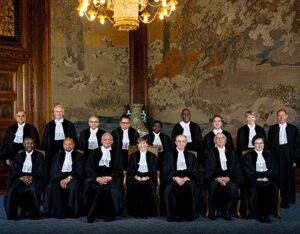

World Court: South Africa Presents Plausible Case That Israel Committed Genocide
On January 26, the International Court of Justice (ICJ, or World Court) handed down a historic, near unanimous ruling in South Africa’s case against Israel for its genocide against the Palestinians in Gaza. At least 26,422 Palestinians have been killed and 65,087 injured by the Israeli Occupying Forces since Hamas’ October 7 attacks. More than 85% of the Palestinians in Gaza have been displaced.
The World Court concluded that South Africa presented a “plausible” case that Israel is committing genocide in Gaza. The court held that the right of the Palestinians to be free from genocidal acts, and South Africa’s right (as a party to the Genocide Convention) to ensure Israel’s compliance with the convention, could be protected by six provisional measures (an injunction), which the court ordered Israel to take.
South Africa’s ministry of foreign affairs described the court’s decision as “a decisive victory for the international rule of law and a significant milestone in the search for justice for the Palestinian people.” The Lawyers for Palestinian Human Rights called the ICJ’s decision “a much-needed light in the darkness,” adding, “It is a historic day for clearly recognizing the fundamental human rights of Palestinians, including their fundamental right to life, and an important vindication of the vital resort to law to uphold fundamental rights.”
Richard Falk, former UN Special Rapporteur on Human Rights in the Occupied Palestinian Territory, said the ICJ’s ruling “marks the greatest moment in the history of the [court]” because “it strengthens the claims of international law to be respected by all sovereign states?—?not just some.” This is particularly significant in light of the recent ruling here in the United States in which the federal district court on January 31 dismissed a lawsuit against Joe Biden, Antony Blinken and Lloyd Austin for their failure to prevent genocide and complicity in genocide by Israel.
Guest – Marjorie Cohn is Dean of the People’s Academy of International Law and a member of the Bureau of the International Association of Democratic Lawyers. Marjorie is also professor of law emerita at Thomas Jefferson School of Law and former president of the National Lawyers Guild. She has written several articles about Israel’s genocidal campaign in Gaza for Truthout.
—-
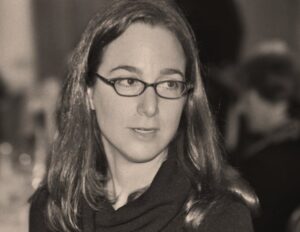
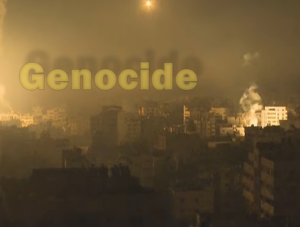
Judge Dismisses Genocide Case On Behalf Of Palestinian Human Rights Groups
On January 26, just hours after the International Court of Justice found a plausible case that Israel is committing genocide in Gaza, a historic 4-1/2 hour hearing took place in a federal courtroom in Oakland, California. Palestinians who are suing President Joe Biden, Secretary of State Antony Blinken and Defense Secretary Lloyd Austin for failure to prevent genocide and complicity in genocide testified before district court Judge Jeffrey White in a live-streamed session. 1,000 people watched the hearing via Zoom. There were also hundreds of people outside the courthouse during the hearing, standing in solidarity with the Palestinian plaintiffs.
The Center for Constitutional Rights (CCR) filed the lawsuit on behalf of Palestinian human rights organizations Defense for Children International – Palestine and Al-Haq, three Palestinian individuals who live in Gaza, and five Palestinian Americans who have family in Gaza.
The plaintiffs petitioned U.S. District Court Judge Jeffrey White to declare that the United States has violated international law and to issue a preliminary injunction to immediately force Biden, Blinken and Austin to stop providing additional money, weapons, and military and diplomatic support to Israel for its genocide in Gaza.
The defendants have asked Congress to appropriate $14.1 billion in military assistance to Israel — in addition to the $3.8 billion the U.S. already provides to Israel each year. Blinken authorized a $320 million transfer of military equipment to an Israeli manufacturer of precision bomb kits.
On January 31, Judge White dismissed the case because it involved a “political question” which is reserved to the executive and legislative branches. He wrote that “the ongoing military siege in Gaza is intended to eradicate a whole people and therefore plausibly falls within the international prohibition against genocide.” But he concluded this case was a “rare” instance where “the preferred outcome is inaccessible to the court.” He also wrote that the “Court implores Defendants to examine the results of their unflagging support of the military siege against the Palestinians in Gaza.”
Guest – Maria LaHood, one of the attorneys who presented the case for the Palestinian plaintiffs, Maria is Deputy Legal Director at CCR, with expertise in constitutional rights and international human rights. Maria works closely with Palestine Legal to support students and others whose speech is being suppressed for their Palestine advocacy around the country. She graduated from the University of Michigan Law School and was named a 2010 Public Justice Trial Lawyer of the Year Finalist.
Hosted by attorneys Heidi Boghosian, Marjorie Cohn and Julie Hurwitz

———————————–
CIA Sponsored Terror, Civil Liberties, Civil Rights, Human Rights, Targeting Muslims, U.S. Militarism, Violations of U.S. and International Law, War Resister
Podcast: Play in new window | Download
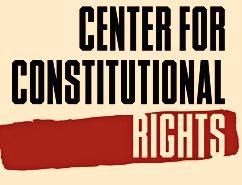
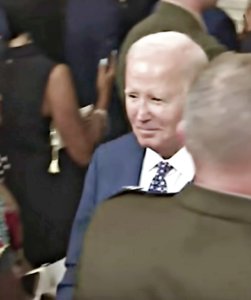
CCR Files Suit: Palestine v Biden
Since the illegal October 7 attacks by Hamas that killed 1,200 people in Israel, the Israeli occupying forces have mounted a massive military assault on the Palestinian people. As of November 21, more than 14,128 Palestinians have been killed, including more than 5,600 children and over 3,550 women; at least 30,000 have been injured; and about 1.7 million out of 2.2 million people in Gaza have been displaced. Hundreds of thousands of people around the world have mounted mass protests against Israel’s war on the Palestinians in Gaza.
On November 13, the Center for Constitutional Rights (CCR) filed suit on behalf of Palestinians against President Joe Biden, Secretary of State Antony Blinken, and Secretary of Defense Lloyd Austin for failure to prevent genocide and complicity in genocide.
Guest – Maria LaHood is Deputy Legal Director at CCR, with expertise in constitutional rights and international human rights. Maria works closely with Palestine Legal to support students and others whose speech is being suppressed for their Palestine advocacy around the country. She graduated from the University of Michigan Law School and was named a 2010 Public Justice Trial Lawyer of the Year Finalist. Maria and other lawyers from CCR wrote the complaint filed in federal court.
—-
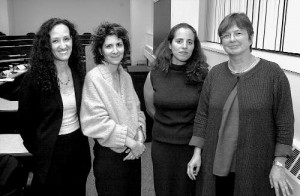
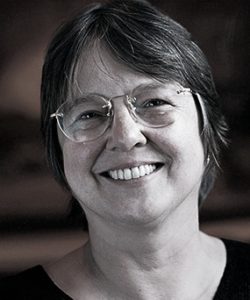
Remembering Professor Holly Maguigan
Holly Maguigan, noted professor and attorney who was a pioneer of the battered woman defense, has died. Holly was Professor of Clinical Law at the New York University School of Law, where she ran the Criminal Justice Clinic: Focus on Domestic Violence and Evidence. She practiced law in Philadelphia in the 1970s and ‘80s, both as a public defender and in private practice, specializing in the defense of victims of domestic violence who assaulted or killed their abusers and then faced criminal prosecution. Judges and juries were largely unsympathetic to women who stayed with their abusive partners even though many were emotionally and psychologically unable to leave those relationships. Traditional self-defense principles require that the abused person have a reasonable belief that she is about to suffer imminent death or great bodily injury. But some people kill their abusers preemptively, before the next attack can occur.
Sue Osthoff, a founder of the Philadelphia-based National Clearinghouse for the Defense of Battered Women, who worked with Holly for decades, said, “I do believe many, many victims of battering would not have done as well as they did” without Holly’s work. Many defendants were acquitted, and several others were not charged at all.
Holly once wrote that criminal defense attorneys must “explain the impact of intimate violence without appearing to pathologize battered women and deny their reason and capacity.” Holly was a member of the Family Violence Prevention Fund’s National Advisory Committee on Cultural Considerations in Domestic Violence cases and she was a co-president of the Society of American Law Teachers.
Professor Holly Maguigan:
- I was doing medieval history and I was at Berkeley. It was 1967 and Oakland stopped the draft.
- I got very interested in the anti-war politics.
- I hated lawyers. I really hated lawyers. They were boring. They talked about themselves all the time. They only had stories about their cases and how great they were and they would never post bail when people got arrested.
- The University of Pennsylvania in Philadelphia is where I stayed for 17 years.
- First I started out as a public defender. I loved being a public defender, it was the beginning and end of everything I hoped it would be.
- That’s where I met David Rudovsky and David Kairys. They were then defenders while I was a student.
- After they went out on their own, they kept inviting me to join them. I kept putting it off because I loved being a defender so much.
- In Philadelphia there was much more actual litigation, not just motion litigation there’s a lot of that here in New York City but actual trials.
- You had a sense, there was an analysis that people were doing life on the installment plan and you needed to do what you could to kick them loose any particular time.
- It was a community in its own odd way and I found it difficult to leave it.
- I was doing major felonies within a couple of years.
- David Kairys was very focused on constitutional litigation and government misconduct. He did the Camden 28 which was a big draft resistance case.
- My interest was more into criminal defense.
- Grand juries (all over the country) convened to investigate the alleged transportation of Patty Hearst by the SLA from California where she had been captured.
- He was a killer. (Frank Rizzo) There was no question. More people died in police actions before or since.
- I don’t mean to suggest that all the police started out as homocidal. This was a situation which from the top down came the message if you’re a good cop then you’re going to take people out however you think you need to.
- I knew about race and class bias in the court room as much as a white woman who was middle class could know.
- I was just blown away by what happens when you add hatred of women to hatred of black people and hatred of poor people.
- Judges would go by me in the hall and say Maguigan, ahem, you didn’t give me anything this Christmas, not even one lousy bottle, you’re not getting any assignments.
- Judges would do things, like open the drawer in their chambers, and there would be wads of bills, and they’d let you know.
- I developed a specialty on women who kill men.
- In the early eighties a group in Philadelphia called Women Against Abuse began working and they did advocacy for battered women accused of crime and meant a huge difference.
- The battered women cases I was working on were quite consuming because people then didn’t know very much in how to try these cases.
- The judges expected you to plead insanity or guilty. Reasonable doubt was a consideration at sentencing not at trial.
- There were cases that did require teams. There was no question.
- I wanted to be in court. I wanted to be in the presence of that conflict between the authorities and regular people.
- I went to NYU where I taught in the criminal defense clinic for many years.
- To see students react to the great stories their clients have is just amazing.
- SALT (Society of American Law Teachers) is about who gets into law school, what they learn and who teaches them. It’s about access to justice. It’s about relating to law school as a place where you train people to do social justice. SALT’s focus is on students and teaching.
- Holly Maguigan to be honored by Society of American Law Teachers.
Guest – Professor Holly Maguigan teaches a criminal defense clinic and one in comparative criminal justice as well as a seminar in global public service lawyering and a course in evidence. She is an expert on the criminal trials of battered women. Her research and teaching are interdisciplinary. Of particular importance in her litigation and scholarship are the obstacles to fair trials experienced by people accused of crimes who are not part of the dominant culture. Professor Maguigan is a member of the Family Violence Prevention Fund’s National Advisory Committee on Cultural Considerations in Domestic Violence cases. She serves on the boards of directors of the National Clearinghouse for the Defense of Battered Women and the William Moses Kunstler Fund for Racial Justice. She is a past co-president of the Society of American Law Teachers, the largest membership organization of law professors in the U.S.
Hosted by attorneys Michael Ratner, Michael Smith, Heidi Boghosian and Marjorie Cohn

————————————————
Uncategorized
Podcast: Play in new window | Download
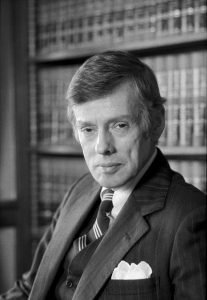
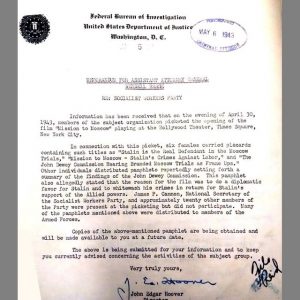
Judge Thomas Griesa : Socialist Workers Party v Attorney General
Retired federal Judge Thomas Griesa died two weeks ago in New York City at age 87. He presided over the historic case Socialist Workers party vs Attorney General. Leonard Boudin, the great leftist constitutional lawyer of his time, was chief counsel for the SWP in the 15 year litigation which ended in an historic victory in 1986 and which is extremely relevant for today.
Leonard wrote that “This lawsuit represented the first wholesale attack upon the entire hierarchy of so-called intelligence agencies that had attempted to infiltrate and destroy a lawful political party.” Further, “for the first time, a court has thoroughly examined the FBI’s intrusions into the political system of our nation and, in unmistakable language, has condemned the FBI activity as patently unconstitutional and without statutory or regulatory authority. The decision stands as a vindication of the first and fourth amendment rights that only of the Socialist Workers Party but of all political organizations in activists in this country to be free of government spying and and harassment.”
The Nation magazine appreciated the significance of the litigation and wrote that “ for the first time the FBI’s disruptions, surreptitious entries and use of informers have been found unconstitutional. All in all, it amounted to a domestic contra operation against a lawful and peaceful political organization, for no reason other than it’s ideological orientation.“
Guest – Jeff Mackler, a longtime socialist activist in California and the West Coast head of The Committee to Free Mumia Abu-Jamal. Jeff Mackler was a plaintiff in the successful 15-year-old battle. Jeff is also the director of The Mobilization to Free Mumia Abu-Jamal in Northern California and also the National Secretary of Socialist Action and its candidate for the U.S., presidency in 2016.
—-
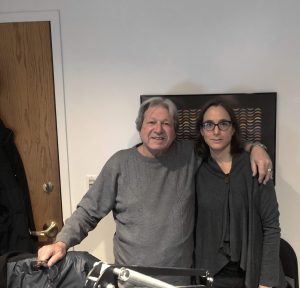
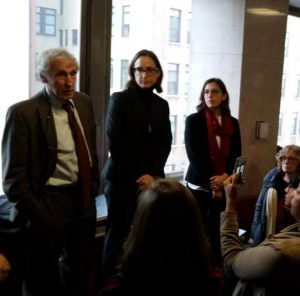
Awad, et al. v. Fordham University
Israel’s enablers in the United States ramped up their efforts to shut down the growing Boycott, Divestment, and Sanctions movement known as BDS. Many states including New York have passed laws against businesses who would boycott Israel as a way of protesting Israel’s colonization of the Palestinian people. An anti-boycott bill is currently before the United States Congress.
In New York City, Fordham University is attempting to prevent Students for Justice in Palestine, a group that supports the boycott, from forming a campus group. The students brought a lawsuit seeking an injunction against the university to enable them to establish a SJP chapter there. Keith Eldridge, the Dean at Fordham University took the position that a SJP group would create polarization on campus and run contrary to the mission and values embraced at the university located in the Bronx.
The students got help from the Center for Constitutional Rights and Palestine Legal. A suit was brought on their behalf in April of last year. Two weeks ago a hearing was held in Civil Court in New York where the students demanded an injunction against Fordham University to permit them to form a chapter.
Guest – Maria LaHood, one of the student’s attorneys and Deputy Legal Director at the Center for Constitutional Rights with expertise in constitutional rights and international human rights. She works to defend the constitutional rights of Palestinian human rights advocates in the United States in cases such as Davis v. Cox, defending Olympia Food Co-op board members for boycotting Israeli goods; Salaita v. Kennedy,representing Steven Salaita, who was terminated from a tenured position for tweets critical of Israel; and CCR v. DOD, seeking U.S. government records under the Freedom of Information Act (FOIA) regarding Israel’s 2010 attack on the flotilla to Gaza. She works closely with Palestine Legal to support students and others whose speech is being suppressed for their Palestine advocacy around the country. She also works on the Right to Heal initiative with Iraqi civil society and Iraq Veterans seeking accountability for the lasting health effects of the Iraq war.
——————
CIA Sponsored Terror, Civil Liberties, Gaza, Habeas Corpus, Human Rights, NSA Spying, Surveillance, Targeting Muslims, Truth to Power
Podcast: Play in new window | Download
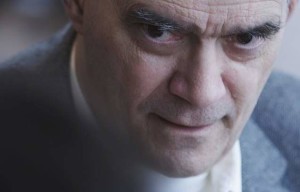

A Good American
Weeks before the September 11 attacks, newly-arrived NSA director General Michael Hayden nixed a highly-effective computer surveillance program called ThinThread. Hayden instead elected to award a $280 million contract to the private Science Applications International Corporation to develop Trailblazer, a program that ultimately cost billions of dollars and that was deemed by anonymous NSA sources as a “wasteful failure” before it was finally abandoned.
A new film by Austrian director Freidrich Moser, “A Good American,” tells the story of the mathematician many consider the best code-breaker the US ever had and how he and a small team within the NSA created ThinThread. It could pick up any electronic signal on Earth, filter for terrorist activity, and render results in real-time, avoiding data overload which has been an life-threatening impediment to national intelligence agencies. ThinThread protected American’s privacy by using an anonymizer so that identities were only revealed after obtaining a court warrant. In a secret test-run in early 2002 of the ThinThread against the pre-9/11-NSA database, the program quickly detected the terrorists’ plans.
Guest – Freidrich Moser, Friedrich holds a university degree (MA) in history and german studies from the University of Salzburg Austria. Friedrich started his professional career as a TV journalist and editor in Bolzano-Bozen Italy. In 2001 he founded blue+green communication. He has made over 20 documentaries most of them as producer director DoP. In 2008 he attended successfully the Documentary Campus, the European Masterschool for non-fiction filmmaking.
—–
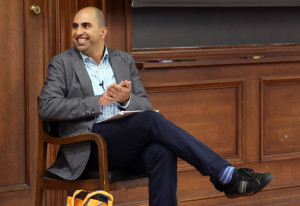
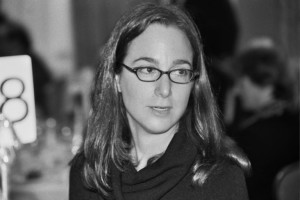
Academic Freedom Case Victory Bittersweet: University of Illinois To Pay $875,000 Settlement To Professor Steven Salaita
University of Illinois trustees have voted to agree to a $875,000 financial settlement with Steven Salaita. Last year, his job offer for a tenured position at the University of Illinois at Urbana-Champaign was withdrawn after he posted tweets harshly critical of the 2014 Israeli assault on Gaza. Under the terms of the settlement, Salaita will not get his job back but will receive $600,000. The rest of the money will go to his legal team. “This settlement is a vindication for me, but more importantly, it is a victory for academic freedom and the First Amendment,” Salaita said in a statement. “The petitions, demonstrations, and investigations, as well as the legal case, have reinvigorated American higher education as a place of critical thinking and rigorous debate, and I am deeply grateful to all who have spoken out.” .
Guest – Maria LaHood – Deputy Legal Director at the Center for Constitutional Rights with expertise in constitutional rights and international human rights. She works to defend the constitutional rights of Palestinian human rights advocates in the United States in cases such as Davis v. Cox, defending Olympia Food Co-op board members for boycotting Israeli goods; Salaita v. Kennedy,representing Steven Salaita, who was terminated from a tenured position for tweets critical of Israel; and CCR v. DOD, seeking U.S. government records under the Freedom of Information Act (FOIA) regarding Israel’s 2010 attack on the flotilla to Gaza. She works closely with Palestine Legal to support students and others whose speech is being suppressed for their Palestine advocacy around the country. She also works on the Right to Heal initiative with Iraqi civil society and Iraq Veterans seeking accountability for the lasting health effects of the Iraq war.
Guest – Anan Swaminathan– joined Loevy & Loevy in 2010. Anand has worked on a broad range of constitutional and civil rights cases, and has worked extensively on False Claims Act litigation, where he has represented whistleblowers alleging defense/military and other government contractor fraud, bid-rigging, Medicare and Medicaid fraud, construction/contractor (MBE/DBE) fraud, and tax fraud. Anand has also represented whistleblowers in financial fraud cases under the Dodd-Frank financial reform bill, and in complex fraud cases under other federal and state statutes.
—-
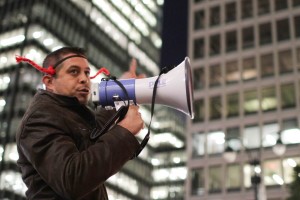
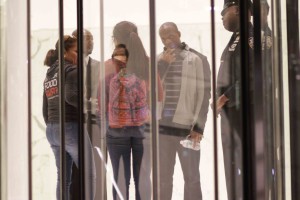
CIW Farmworkers Protest Wendy’s Board Chairman Nelson Peltz
We caught up with the Coalition of Immokalee Workers protest in front of the Wendy’s fast food restaurant in midtown Manhattan and spoke with Gerardo Reyes Chávez. Gerardo has worked in the fields since age 11, first as a peasant farmer in Zacatecas, Mexico, and then in the fields of Florida picking oranges, tomatoes, and watermelons. He joined the Coalition of Immokalee Workers, a Florida-based human rights organization, shortly after his arrival in the United States in 2000, when his fellow farm worker roommates, who had previously escaped a violent slavery operation hidden in the swamp south of Immokalee, Florida, invited him to come to the CIW’s Wednesday evening community meetings.
We also spoke with a Rabbi Raphael Kohntraster with T’ruah, a major Jewish ally of the Coalition of Immokalee Workers, inspiring Jewish communities around the country to join and support the human rights of farmworkers and call on grocery stores and restaurant chains to sign onto the Fair Food Program.
(photo credit: Jake Ratner)
————————————————————-
Civil Liberties, Criminalizing Dissent, Gaza, Human Rights, Surveillance, Targeting Muslims, War Resister
Podcast: Play in new window | Download

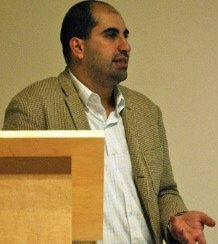
Professor Steven Salaita Case Moves Forward In Federal Court: First Amendment and Due Process Violations Upheld
There was a major federal court victory in Illinois on the Professor Steven Salaita case last week. Federal judge Harry Daniel Leinenweber ruled that the university had failed in its attempt to get Salaita thrown out of court. He upheld Salaita’s allegations that his First Amendment rights were violated. He upheld Salaita’s allegations that his due process rights were violated. He upheld his allegations that he had a contract and he said this case has to proceed to discovery and I’m not going to throw it out at this point. The judge took a very strong position with respect to both the contract and freedom of speech. It looks like the University of Illinois is on a losing path. The day after the decision came down, Chancellor Wise who was one of people responsible for firing Professor Steven Salaita, resigned from her job.
Guest – Maria LaHood, Deputy Legal Director at the Center for Constitutional Rights with expertise in constitutional rights and international human rights. She works to defend the constitutional rights of Palestinian human rights advocates in the United States in cases such as Davis v. Cox, defending Olympia Food Co-op board members for boycotting Israeli goods; Salaita v. Kennedy,representing Steven Salaita, who was terminated from a tenured position for tweets critical of Israel; and CCR v. DOD, seeking U.S. government records under the Freedom of Information Act (FOIA) regarding Israel’s 2010 attack on the flotilla to Gaza. She works closely with Palestine Legal to support students and others whose speech is being suppressed for their Palestine advocacy around the country.
—–

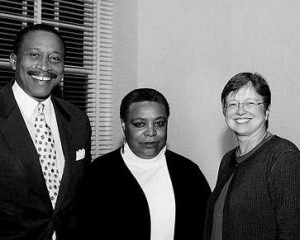
Lawyers You’ll Like: Professor Holly Maguigan
In our Lawyers You’ll Like series we’re joined by Professor Holly Maguigan, Professor of Clinical Law at the New York University School of Law, where she teaches Comparative Criminal Justice Clinic: Focus on Domestic Violence and Evidence. Professor Maguigan is an expert on the criminal trials of battered women. Her research and teaching is interdisciplinary. Professor Maguigan is a member of the Family Violence Prevention Fund’s National Advisory Committee on Cultural Considerations in Domestic Violence cases. She serves on the boards of directors of the National Clearinghouse for the Defense of Battered Women and the William Moses Kunstler Fund for Racial Justice. She is a past co-president of the Society of American Law Teachers, the largest membership organization of law professors in the U.S.
Professor Holly Maguigan:
- I was doing medieval history and I was at Berkeley. It was 1967 and Oakland stopped the draft.
- I got very interested in the anti-war politics.
- I hated lawyers. I really hated lawyers. They were boring. They talked about themselves all the time. They only had stories about their cases and how great they were and they would never post bail when people got arrested.
- The University of Pennsylvania in Philadelphia is where I stayed for 17 years.
- First I started out as a public defender. I loved being a public defender, it was the beginning and end of everything I hoped it would be.
- That’s where I met David Rudovsky and David Kairys. They were then defenders while I was a student.
- After they went out on their own, they kept inviting me to join them. I kept putting it off because I loved being a defender so much.
- In Philadelphia there was much more actual litigation, not just motion litigation there’s a lot of that here in New York City but actual trials.
- You had a sense, there was an analysis that people were doing life on the installment plan and you needed to do what you could to kick them loose any particular time.
- It was a community in its own odd way and I found it difficult to leave it.
- I was doing major felonies within a couple of years.
- David Kairys was very focused on constitutional litigation and government misconduct. He did the Camden 28 which was a big draft resistance case.
- My interest was more into criminal defense.
- Grand juries (all over the country) convened to investigate the alleged transportation of Patty Hearst by the SLA from California where she had been captured.
- He was a killer. (Frank Rizzo) There was no question. More people died in police actions before or since.
- I don’t mean to suggest that all the police started out as homocidal. This was a situation which from the top down came the message if you’re a good cop then you’re going to take people out however you think you need to.
- I knew about race and class bias in the court room as much as a white woman who was middle class could know.
- I was just blown away by what happens when you add hatred of women to hatred of black people and hatred of poor people.
- Judges would go by me in the hall and say Maguigan, ahem, you didn’t give me anything this Christmas, not even one lousy bottle, you’re not getting any assignments.
- Judges would do things, like open the drawer in their chambers, and there would be wads of bills, and they’d let you know.
- I developed a specialty on women who kill men.
- In the early eighties a group in Philadelphia called Women Against Abuse began working and they did advocacy for battered women accused of crime and meant a huge difference.
- The battered women cases I was working on were quite consuming because people then didn’t know very much in how to try these cases.
- The judges expected you to plead insanity or guilty. Reasonable doubt was a consideration at sentencing not at trial.
- There were cases that did require teams. There was no question.
- I wanted to be in court. I wanted to be in the presence of that conflict between the authorities and regular people.
- I went to NYU where I taught in the criminal defense clinic for many years.
- To see students react to the great stories their clients have is just amazing.
- SALT (Society of American Law Teachers) is about who gets into law school, what they learn and who teaches them. It’s about access to justice. It’s about relating to law school as a place where you train people to do social justice. SALT’s focus is on students and teaching.
- Holly Maguigan to be honored by Society of American Law Teachers.
Guest – Professor Holly Maguigan teaches a criminal defense clinic and one in comparative criminal justice as well as a seminar in global public service lawyering and a course in evidence. She is an expert on the criminal trials of battered women. Her research and teaching are interdisciplinary. Of particular importance in her litigation and scholarship are the obstacles to fair trials experienced by people accused of crimes who are not part of the dominant culture. Professor Maguigan is a member of the Family Violence Prevention Fund’s National Advisory Committee on Cultural Considerations in Domestic Violence cases. She serves on the boards of directors of the National Clearinghouse for the Defense of Battered Women and the William Moses Kunstler Fund for Racial Justice. She is a past co-president of the Society of American Law Teachers, the largest membership organization of law professors in the U.S.
————————————-





















